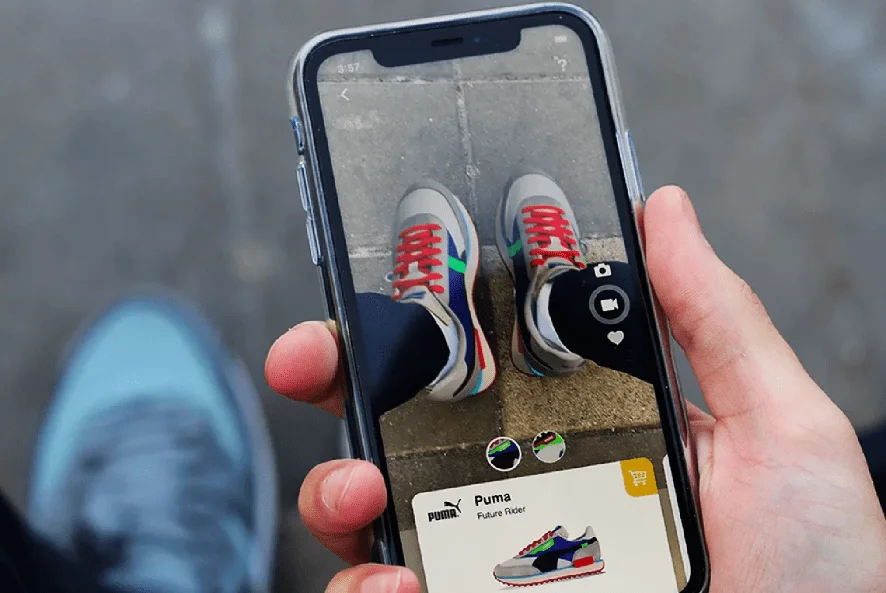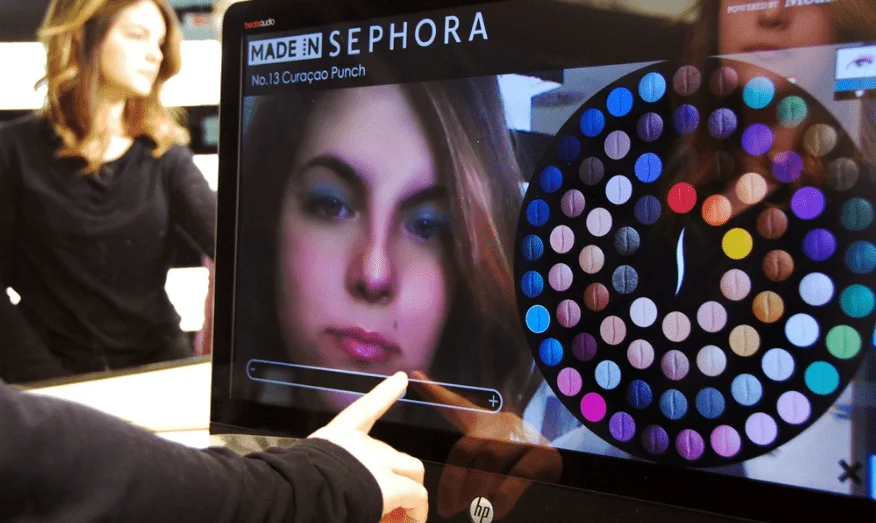Since the metaverse became a buzzword courtesy of Meta (formerly Facebook), harnessing the opportunities involved in this next stage of the internet has become a necessity for some business brands. e-Commerce in the metaverse looks to be the future of buying and selling on the internet, but what is the metaverse?

What is the Metaverse?
The term metaverse which was said to have been coined from Snow Crash (Neal Stephenson’s dystopian cyberpunk novel) is a 3D virtual reality realm that can be accessed using personal terminals and virtual reality goggles similar to the Oculus Quest and other VR headsets.
Users see this 3D area as an urban environment developed along a single hundred-meter-wide street known as the Street. According to Stephenson.
The metaverse is a conglomeration of several technology advancements that work in unison. The metaverse moves technology out of the digital realm and into the physical realm, from NFTs to social commerce to augmented and virtual reality.
In the metaverse, various areas of life such as Music, Real estate, Food and restaurant enterprises, Sports, fashion, and other e-commerce businesses have carved out a niche for themselves.
Buying and selling commodities is a significant aspect of the metaverse as it tends to combine e-commerce with traditional shopping, if you want to know what e-Commerce look like in the metaverse we’ll discuss that in detail in this article but how will the metaverse affect your e-commerce business?
What impact will the metaverse have on e-commerce?
While speaking about the metaverse, Zuckerburg stated that virtual shopping will be one of the most important components of the new digital world, implying that the eCommerce industry will undergo significant changes.
So, what can we anticipate to change?
- New Technology
- Removal of physical constraints
- KYC will be a lot easier
New Technology
As the metaverse becomes a reality for us, new technological features will emerge that will alter the way we purchase online. Because the metaverse hasn’t fully become our reality yet, a lot of this is still speculation.
However, Zuckerburg indicated that Facebook would be launching a new marketing platform where individuals can sell and exchange 3D objects, and we anticipate that after Facebook has done so, it won’t be long before it becomes the norm.
Removal of physical constraints
The metaverse will eliminate many of the physical constraints or barriers that currently exist in commerce, allowing totally new firms to emerge,’ according to Meta’s Vice President, Vishal Shah.
Physical barriers are well-known as a stumbling block for businesses; however, the metaverse may be able to alleviate this problem.
Assume you’re an individual in need of some boots because winter is approaching, and the nearest store selling boots is a long way from your residence. Because you don’t have time to travel there, you opt to buy one online.
The metaverse, on the other hand, is distinct. It will bring the store to you virtually, just as if you were visiting a physical store in person.
According to Facebook, if people can benefit from the metaverse, eCommerce may be worth hundreds of millions of dollars in the next ten years in the metaverse world.
KYC will be a lot easier
The know your customer (KYC) process will be pretty much easy as eCommerce enterprises will be able to personalize their offerings for their customers thanks to the metaverse.
Imagine being able to invite every single one of your clients to the debut of your new line. All of this will be feasible due to the metaverse’s digital advantages.
Product discovery, personalization, and fulfilment can all be done from the comfort of your own home in a matter of minutes. The metaverse will enable eCommerce enterprises to offer more to their clients without increasing their costs. Having known the various impacts the metaverse will have on online businesses, how then can an online businesses prepare for the metaverse?
What can eCommerce companies do to get ready for the metaverse?
It’s still unclear when (or if) the metaverse will become widespread. However, one thing is certain: eCommerce companies must begin planning for the future right now. In order to prepare for a virtual eCommerce marketplace, long-term strategy must be developed.
Cathy Hackl, Chief metaverse officer and CEO of metaverse-focused consulting firm Futures Intelligence Group, says that “every brand and corporation will need a metaverse strategy.”
Online businesses can take the following steps to prepare for a virtual future:
- Keep up with the most recent developments
- Playing Games
- Embrace digital transformation
- Understand your target market
- Understand Cryptocurrencies
Keep up with the most recent developments
eCommerce businesses will need to keep up with the latest technology breakthroughs in order to keep up with the metaverse’s expansion.
This includes grasping the concept and identifying new eCommerce opportunities in the marketplace. Online businesses will also need to keep up with the latest developments in AR, VR, and MR technologies, which are continuously evolving.
Playing Games
The gaming community can serve as a source of inspiration and knowledge for eCommerce companies. Gamers understand how digital and physical realities interact since they are already involved in early manifestations of the metaverse.
Gamers have a big say in how the metaverse is created in a lot of ways. To that aim, e-commerce business owners might begin by playing games such as Robolox and Fortnight to gain a sense of how the metaverse works and what it can provide.
Embrace digital transformation
Brands must also embrace the digital change that will be required to work in a virtual environment. Systems that are ordinarily 2D will have to be 3D to be functional in the metaverse.
3D modeling brings a product to life in a way that improves the user experience substantially. As more firms make the switch to 3D experiences, 2D graphics will begin to feel dated.
Understand your target market
Marketers must be aware of the target markets of metaverse users in order to adapt to the evolving technology. Because Millennials, Gen Z, and Gen Alpha are the most likely to spend money in virtual marketplaces, marketers would be wise to embrace them today.
In the short term, cultivating a positive brand image with these demographics could pay off in the long run.
Understand Cryptocurrencies
Because cryptocurrencies function in virtual worlds like virtual dollars, e-commerce businesses must learn everything they can about this new kind of payment.
NFTs, tokens, crypto wallets, blockchain technology, and all other components of cryptocurrency should be studied by e-commerce businesses. Most importantly, they can now figure out how to use this new “digital cash” in their online stores.
After getting all set for the metaverse as an online business, you might be wondering how e-commerce in the metaverse will fare or what it will be like.
E-commerce in the metaverse
E-commerce in the metaverse simply means buying and selling in a digital or virtual environment. The industry is undoubtedly expected to grow in the next couple of years. As technology and the use of technology advance, more novel features that combine offline and online purchasing will become available.
Because of the expanding popularity of augmented reality (AR) technology, consumers may be completely confident in the quality and fit of a product before they buy it.
This benefits customers in terms of convenience, but it also benefits merchants in terms of reducing returns and expanding their customer base.
The pace of product discovery and personalisation will also go up. Brands will be able to provide shoppers with a highly tailored digital experience thanks to metaverse technology.
The metaverse will provide a seamless experience for shoppers, allowing them to find exactly what they want when they want it.
Unlike the present constraints of individualized digital shopping experiences, the metaverse will allow companies to tailor the buying experience at scale, allowing them to reach a larger number of customers than ever before. Talking about e-commerce companies or brands, some have already made their way into this virtual world.
Some e-commerce businesses in the Metaverse
Where the internet ushered in the eCommerce age, the metaverse will usher in the Immersive Commerce, or iCommerce era with several firms already experimenting with developing unique metaverse experiences. Some of these include:
- IKEA
- Warby Parker
- Wanna Kicks
- Sephora
- L’Oréal
- Maybelline
- Olay
IKEA
IKEA’s Place app is a great example of how to use the “experience and buy” concept. IKEA provides customers with a one-of-a-kind experience while also creating a stream of additional user data.
It was one of the first mobile shopping apps to utilize Apple’s augmented reality platform, ARKit. It enables users to virtually try on furniture to get a better idea of how a new couch or table will appear in their home.

Warby Parker
Warby Parker offers a virtual try-on app that allows you to try on all of the frames (eyeglass frames) in the company’s collection before making a purchase.
Customers could choose a pair of frames and see how they looked right away. The technology is based on Apple’s ARKit, and it’s exclusively available to Warby Parker iOS app customers with an iPhone X or later.
This allows you to purchase its items online without having to take a chance on whether or not the product is suitable for your face. How lovely does that sound?

Wanna Kicks
The iOS app “Wanna Kicks” lets you “try on” numerous pairs of sneakers using augmented reality. Simply pick a pair of kicks from the selection of 3D models, position your camera at your feet, and presto: you’re practically wearing them.
The effect is almost instantaneous, and it follows you around when you move and rotate your feet or adjust the camera position. You can even try walking while the AR software tracks your movements.

Sephora
The Virtual Artist at Sephora analyzes your skin and face traits to make product recommendations. By the end of 2018, users had used this function to demo over 200 million colours.

L’Oréal
L’Oréal Professionnel 3D hair makeover app Style My Hair allows you to “try on” an almost unlimited number of hair colors and styles using augmented reality.

Maybelline
With Maybelline’s “Virtual Try-On” tool, you can apply and compare four different makeup products at the same time. It also includes a comparison of the before and after appearances.

Seeing big brands making their metaverse move and what they stand to gain, your motivation for the metaverse might just be closer than you think. How then will you move your business successfully without hassles to the metaverse?
How to move your e-commerce business to the metaverse?
Considering the impacts the metaverse will have on your online business, the advantages and perks the exposure will bring to you as a seller and the future for eCommerce, you might make a decision to move your business to the virtual space.
The video below explains how merchants can successfully move their businesses to the metaverse.
How to make money from metaverse e-commerce business
To make money from metaverse e-commerce business, one must think of the metaverse as a platform for aggressive marketing and as the main purpose of buying and selling is profit-making, the metaverse looks to achieve this. Regardless of how much you make from the traditional online business, the metaverse promises more due to its high tech feature and wide audience reach.
Traditional advertising, of course, will not be effective in this situation, individuals could instead benefit from techniques similar to those used in virtual reality advertising. Examples:
• A virtual reality demo to demonstrate all aspects of the product
• Virtual reality experiences that are both informative and designed to pique buyers’ interest in your goods.
Assume you have an eCommerce store in the metaverse with a variety of things for sale. People visit your store to look through the items and place orders for the ones they like.
Then you take their orders and deliver them to their real-world addresses. This business will make you a lot of money and you will never run out of customers.
Virtual stores and exhibitions will be a component to be mindful of in addition to VR experiences, as the most essential aspect of metaverse marketing is how they can connect actual stores to customers via the virtual world. After knowing you can actually make real-world money from trading in the metaverse, the next stop is how to market or sell your products
How to sell products in the metaverse?
The steps below outline how to sell products in the metaverse.
- Determine your target audience
- Keep an eye on your rivals
- Choose what works best for you
- Make a spectacular entrance
Determine your target audience
e-commerce businesses should determine how much time their client base spend in the metaverse. What are the demographics of the area? Are they related by age, psychology, and trends? As a result, the company can assess its strategy and impact.
Keep an eye on your rivals
Keep an eye out for your competition as they enter the market. By keeping a close eye on your competition and learning from them, you can provide a better experience for your customers. By bringing innovation and uniqueness to the table, you may achieve high standards.
Choose what works best for you
Find a metaverse platform that meets your customer-level marketing and advertising ideas. If you’re going to use a platform, be sure it’s flexible and easy to use.
It’s not so much about the technology as it is about how the interface makes the user feel at ease on the first engagement.
It should also help you achieve your goal of generating an impression. Choose a platform that combines excellent technology with a positive user experience.
Make a planned entrance
With so many media organizations keeping a close eye on the area, it’s best to plan ahead of time and focus on how your brand or product should appear or look in the metaverse.
What other measures do you have in place? As well as early rounds of news, to generate anticipation for your virtual debut.
Conclusion
eCommerce in the metaverse hopes to usher in the future of buying and selling, advanced marketing technology, proximity to the right market audience, business to customer relationship and huge money-making opportunities owing to a large network of users.
